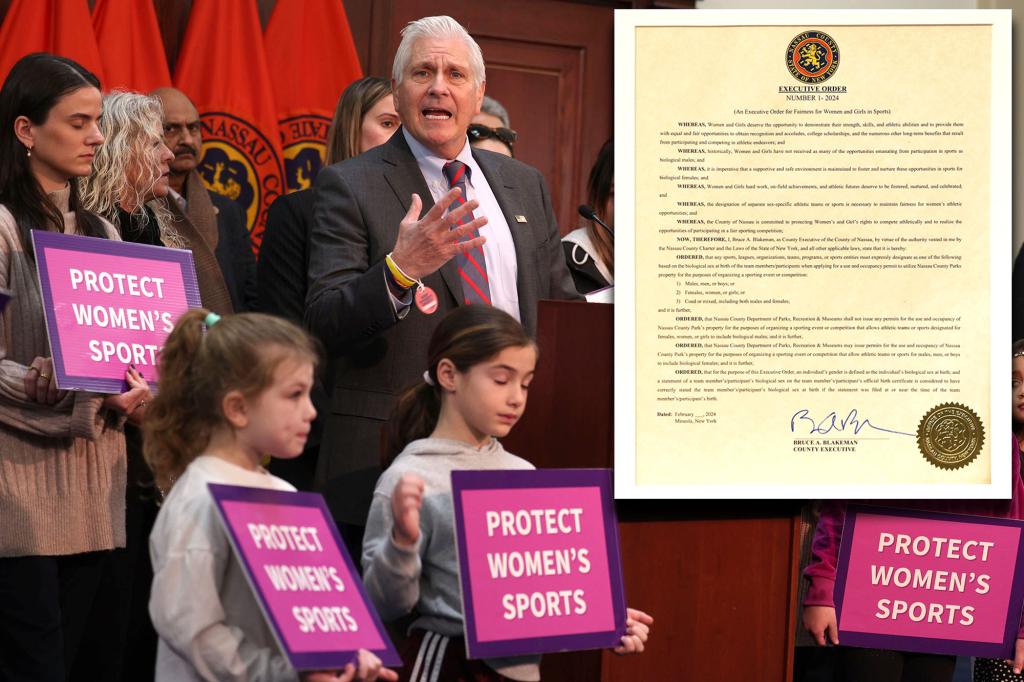The Nassau County County legislature has approved a measure to reinstate a ban on transgender athletes from participating in women and girls’ sports at county-owned athletic facilities, which will soon be signed into law by County Executive Bruce Blakeman. The measure passed along party lines, with the Republican majority voting in favor and Democrats opposing it. The ban was imposed after a state Supreme Court judge ruled that Blakeman did not have the authority to implement such a prohibition via executive order without the legislature’s approval.
Critics of the ban, including the New York Civil Liberties Union and State Attorney General James, have called it “hateful,” “illegal,” and “discriminatory.” However, supporters believe that transgender individuals who were biologically male have physical advantages when competing against women. Caitlyn Jenner, a well-known transgender figure and former Olympic athlete, supports the ban due to the inherent differences in physical abilities between men and women. The key argument is that biological sex at birth should determine which sports category an individual competes in.
Jenner highlighted that the differences between men and women are determined by DNA and chromosomes and that the physiological advantages men have over women due to male development, including going through male puberty. The solution, according to Jenner and other ban supporters, is simple: athletes should compete in the biological sex they were assigned at birth. With the legislation aimed at protecting the integrity and safety of women’s sports, the debate between upholding fairness and discrimination against transgender individuals has sparked controversy in Nassau County.
Opponents of the ban argue that it infringes on the rights of transgender individuals and is discriminatory and transphobic. They emphasize the importance of inclusivity and equal opportunities for all individuals, regardless of their gender identity. The threat of legal action looms over the ban, with the New York Civil Liberties Union stating that if enacted, Nassau County could face legal challenges. The ban has been met with resistance from various advocates and organizations who are committed to advancing equality and rights for LGBTQ individuals.
As the ban on transgender athletes in women and girls’ sports moves forward in Nassau County, the debate surrounding the legislation reflects broader societal conversations about gender identity, equality, and discrimination. With differing perspectives on the issue, including concerns about physical advantages, fairness in competition, and fundamental rights, the decision to reinstate the ban reveals the complexities and divisions within the community. The clash between safeguarding the integrity of women’s sports and upholding the rights of transgender individuals underscores the ongoing struggle to navigate issues of identity, inclusivity, and fairness in sports and society.














